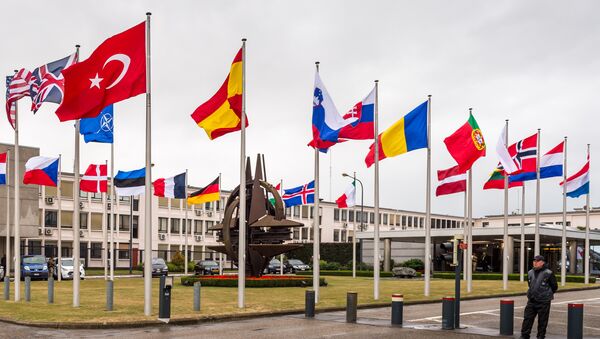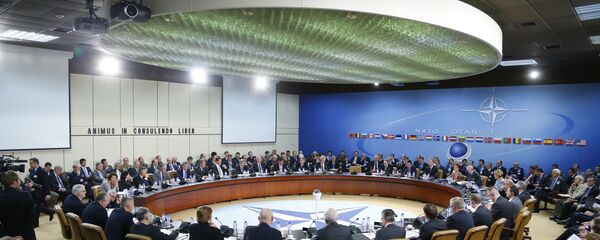The main subject of the upcoming meeting at the ambassadorial level will be the Ukrainian crisis.
"Both sides are obviously hoping to make more progress [in the conflict], than in March 2014," the article said.
According to NATO Secretary General Jens Stoltenberg, the meeting will be "a continuation of our political dialogue." At the same time he stressed that the work of the NATO-Russia Council in the usual mode will be resumed only if Moscow starts to "respect international law".
"The West is interested in Russia, whose actions are more or less predictable, and has been looking for a new modus vivendi," the newspaper wrote.
The head of the Centre for Defense Studies at the Russian Institute for Strategic Studies, Grigory Tishchenko, confirmed this point in an interview with Radio Sputnik, saying that the resumption of dialogue is primarily important for the military alliance.
"Our armed forces have become largely "invisible" for NATO. And that is what they are more and more worried about, what they more and more are talking about it. Our weapons, which they hadn't been aware of, or thought they had totally different characteristics, have been used in Syria. And it was a complete surprise for NATO," the expert said.
"Therefore, I think that the resumption of the Russia-NATO Council is, first of all, beneficial for the alliance," he added.
NATO decided to suspend all practical cooperation with Russia in April 2014, less than a month after Crimea rejoined Russia. Moscow has repeatedly pointed at the legality of Crimea's referendum to join Russia, and denied being a party to the Ukraine conflict.




